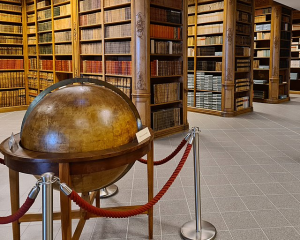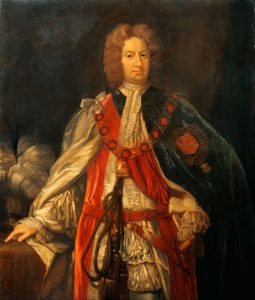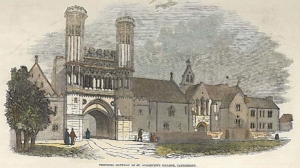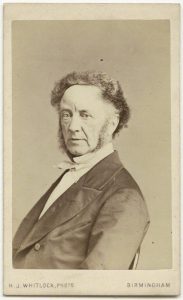
Over this academic year, the Scottish Centre for Global History (SCGH) and the Centre for Scottish Culture (CSC) will be holding a number of online research seminars. For more information and if you would like to attend any of the below seminars please contact:
- Professor Graeme Morton, Director, Centre for Scottish Culture (g.z.morton@dundee.ac.uk).
- Dr Matt Graham, Director, Scottish Centre for Global History (m.v.graham@dundee.ac.uk).
All seminars take place via Microsoft Teams unless otherwise stated.
Topics & Authors
Below is a list of the Research Seminars planned at the University of Dundee for the academic year 2022/23, highlighting the range and diversity of topics covered in the field of Global History.
Semester 1 – 2022
3) Dr Laura Doak, from the University of Dundee, will be presenting a paper entitled The Scottish Privy Council and the People, c. 1692-1708.

James Graham, last Lord President of the Scottish Privy Council
Prior to its final meeting in 1708, Scotland’s Privy Council was key to maintaining order and managing public opinion; both as real expressions of popular sentiment and stage-managed representations of the regime’s own popularity. Council rhetoric frequently emphasised Scots’ need to stand united against a common enemy ousted by the 1688-1690 revolution, but moments of dissent reveal continued uncertainty and a political relationship negotiated by persuasion and propaganda. Drawing on findings as a research fellow with the Scottish Privy Council Project, this paper will consider some of the public order issues and expressions of anti-government opinion dealt with by the Privy Council between 1692 and 1708, including Jacobite protests and pressment riots. How the Council faced these challenges reveals much about its capabilities and – as this paper will argue – also sheds new light on Scotland’s last few decades as an independent kingdom.
Date: Wednesday, 7th December
Time: 4:30-6 p.m.
Venue: University of Dundee campus, Tower Building, Room T8
Completed Seminars
1) Dr Emily Manktelow, lecturer in Global and Colonial History focusing on the British empire with a particular interest in the everyday life of empire, from the Royal Holloway University of London presented a paper entitled Colonial Christians in Imperial Britain.

During the nineteenth century hundreds (if not more) of colonial Christians, the recipients of colonial mission work, visited Britain as students, servants, tourist and delegates. Their lives and experiences were threaded into an imperial rhetoric of humanitarian benevolence that worked to justify imperial expansion to a sometimes sceptical, but increasingly patriotic Christian middle class in Britain. This article uses the stories of three of these colonial Christian visitors, so-called ‘foreign students’ at St. Augustine’s Missionary College in Canterbury, to explore the politics of identity within this transcolonial journeying. Colonial Christian cosmopolitan identities were made and remade through these transcolonial encounters mediated by Christian networks of self-defining Christian imperial benevolence. Both Britain and Empire were made and remade though embodied trajectories of cultures and ideas. Christian colonial cosmopolitanism ultimately made promises it could not keep, though, and thus worked to unmake Empire through the political mobilisation of its disappointed adherents.
Date: Wednesday, 26th October
Time: 4:30-6 p.m.
Venue: Webinar
2) Craig Thomas from Newcastle University presented a paper entitled Buccleuch: A Responsible Family or a Paternalistic Duty?

Like many nineteenth century landed magnates, the Dukes of Buccleuch and Queensberry had hundreds of tenants across several estates. This allows us to ask the question: how far and in what ways did the family operate under a paternalistic ethos and what did this mean practically? This talk will examine the paternalistic activities of the 5th Duke of Buccleuch (1806-1884) and his wife, Duchess Charlotte Anne (1811-1895) drawing on several examples of paternalistic behaviour. Lastly, the talk will also address the question of what paternalistic activity meant for the wider image and reputation for the Dukedom of Buccleuch and Queensberry at a time when many of their contemporaries were beginning to see a decline in their fortunes and ultimately failing financially, politically and culturally.
Date: Wednesday, 2nd November
Time: 4:30-6 p.m.
Venue: Webinar